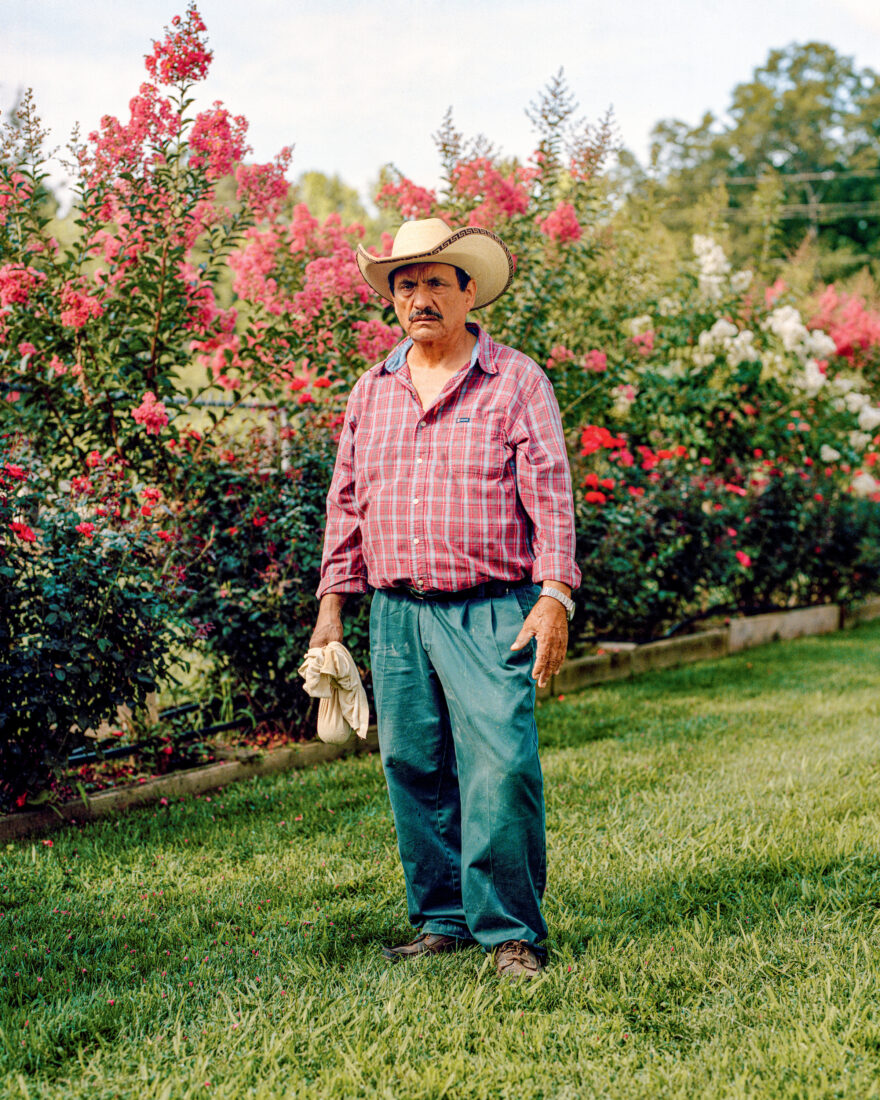José Ibarra Rizo can replay every detail of the nearly two-thousand-mile journey he and his mother, Amelia, took from Guanajuato, Mexico, to Gainesville, Georgia, when he was seven years old. He remembers how his mother hid her money in his shoe; he recalls her strength and determination; he can still feel the trauma of being robbed at gunpoint and hiding in tall grass.
Rizo, a Georgia College & State University graduate, is now an in-demand Atlanta photographer. He’s spent his career primarily making portraits, and especially documenting other immigrants—from Mexico, Guatemala, Honduras, El Salvador. He photographs day laborers, construction workers, teenage lovers, skateboarders, and landscapers against Georgia’s fecund terrain. His subjects are usually outside, both literally and figuratively, and they are often at work, going to work, or coming home from work. “A lot of the connection I have with my subjects is through labor,” Rizo says. “Being in America means working.”

Rizo’s photographs have appeared in Time, the New York Times, and Rolling Stone, and his portraits hang in the collections of Emory’s Michael C. Carlos Museum, the Virginia Museum of Fine Art, and Atlanta’s High Museum of Art. Last fall the High featured Rizo alongside such legends as Sally Mann and Richard Misrach, and this spring, his work will be on view at Atlanta’s Museum of Contemporary Art of Georgia.

Despite the broad acclaim, Rizo’s success centers around personal moments. He aims to show more intimate stories—mothers carrying their babies, young men tending their gardens—than those typically told about the immigrant experience. “The rhetoric is so dehumanizing,” he says. He would rather focus on “the nuances, to show that we are human.”

Recently, Rizo photographed his mother, who works in Georgia’s poultry industry. Returning home from her graveyard shift, Amelia casts her eyes down in one image. Her hair is tucked into a shower cap underneath a white helmet emblazoned with her name. You can almost feel her fatigue. Rizo shrugs. There’s more to her story, and he’s just not sure he could ever capture it all.
Read more about the South’s new slate of artists, curators, preservationists, movers, and makers in Art’s Rising Vanguard.








